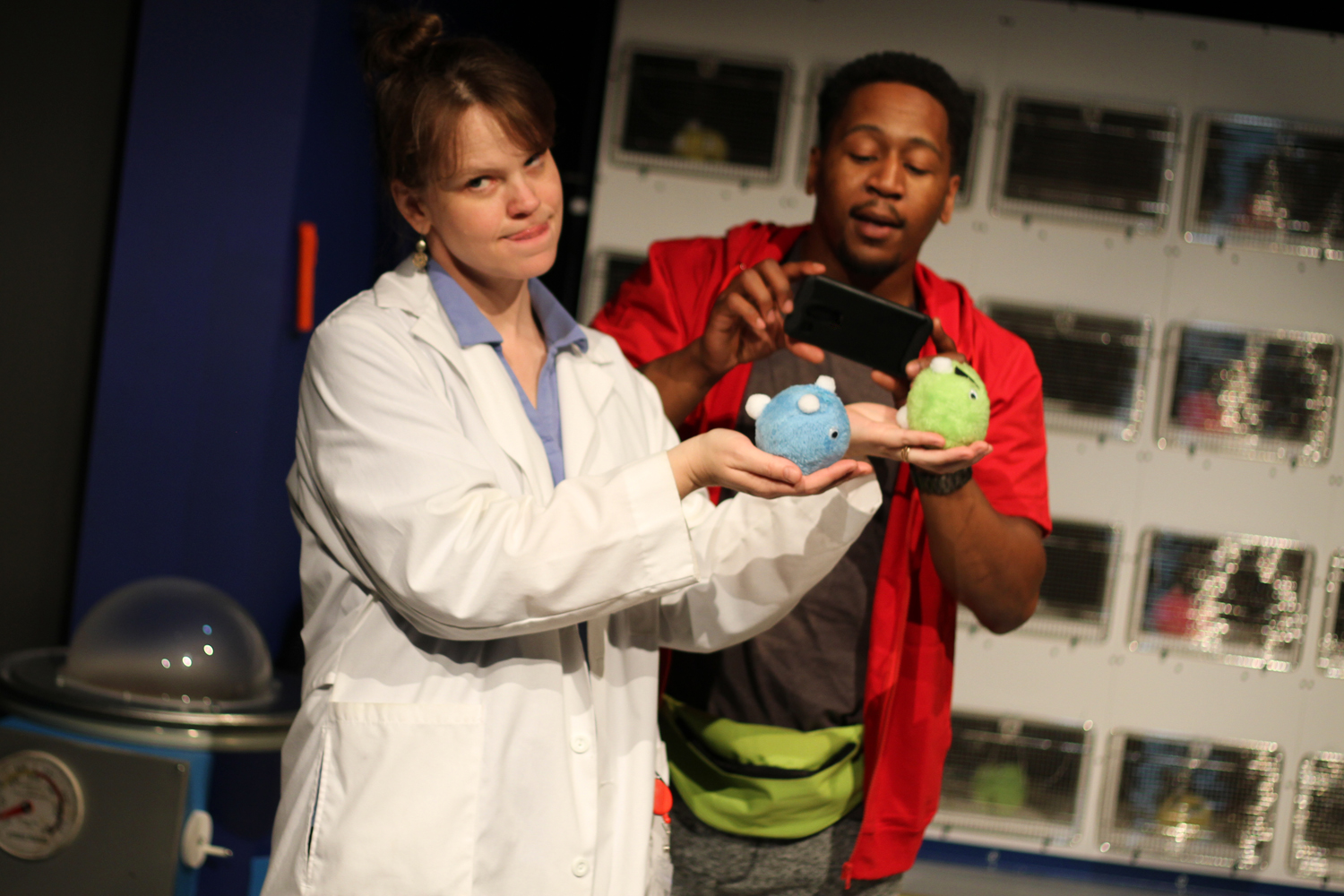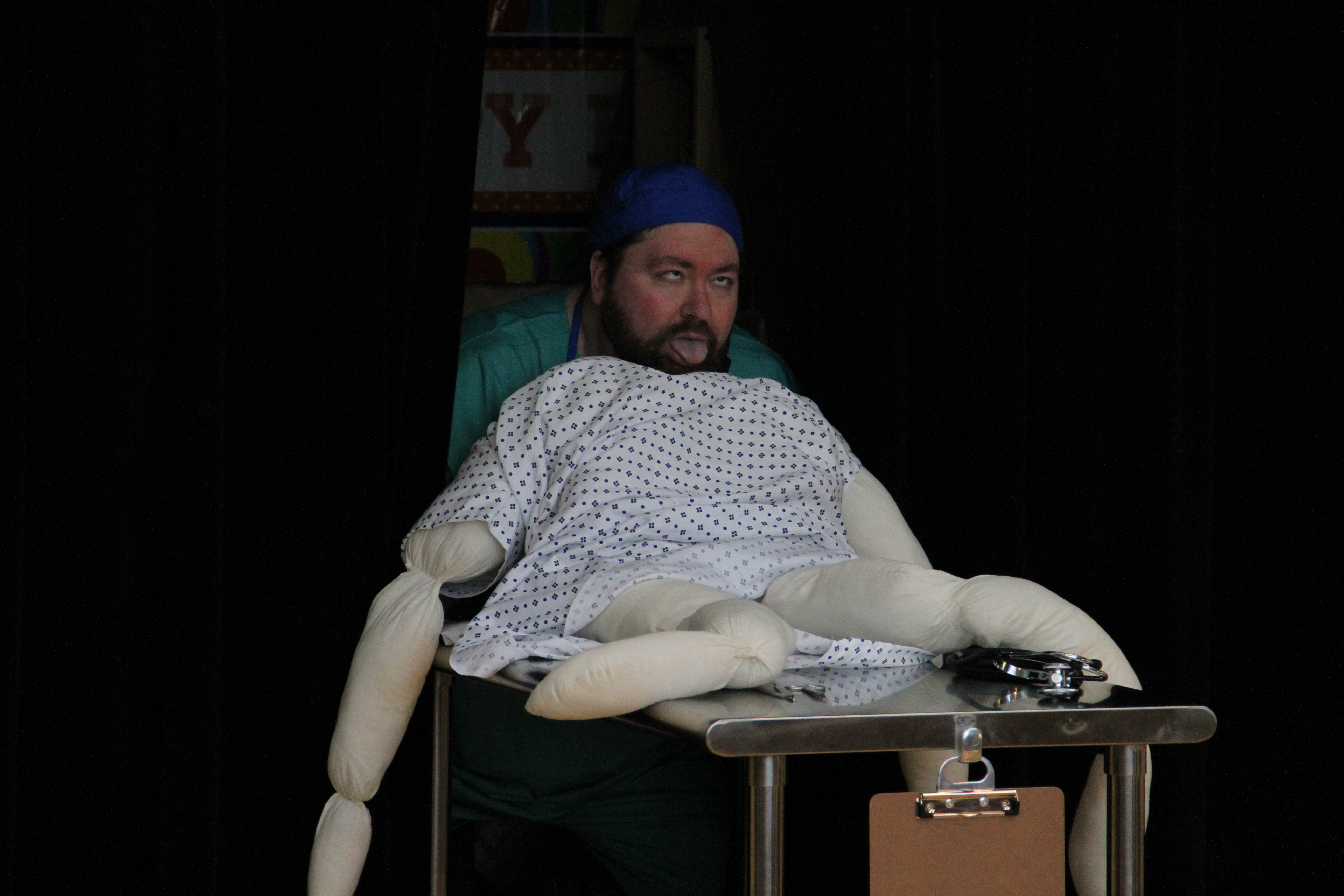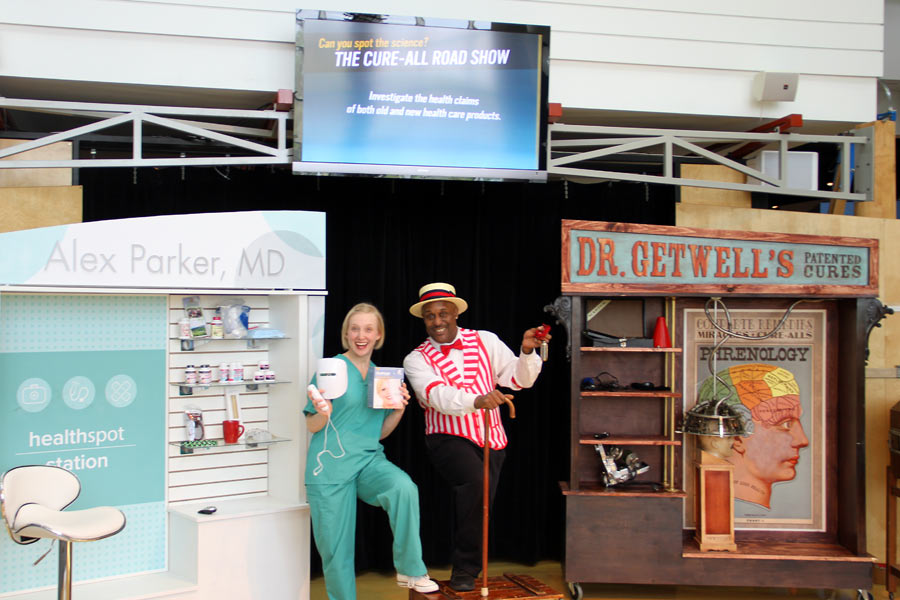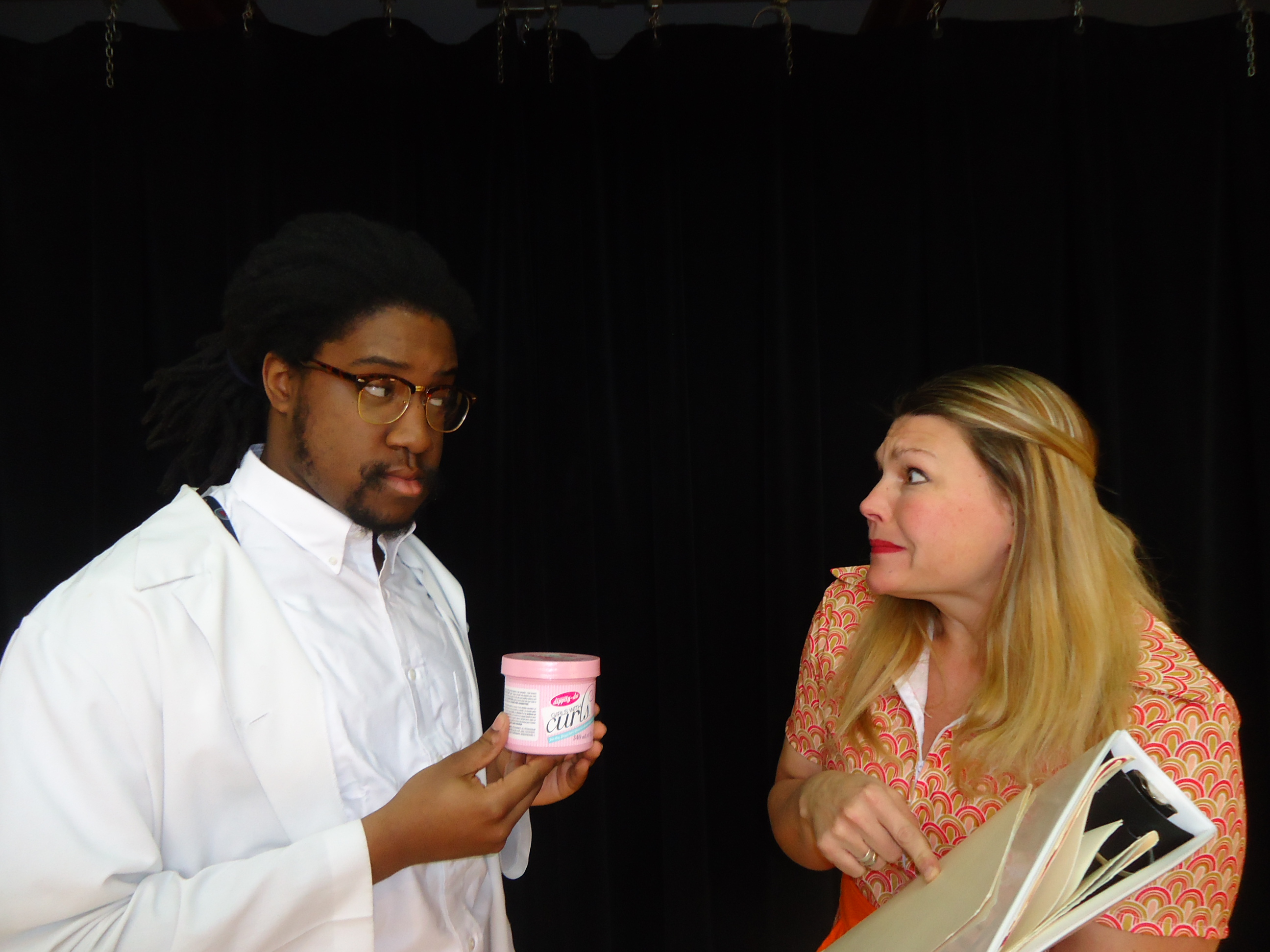
Mitigating Failure Through
Unscripted Expertise: a polemic
By Molly M. Ritchie
When first asked to write an article on the theme “Adaptation! When things don’t go as planned…” I thought it would be fun to ask my fellow castmates for Science Live Theatre horror stories, then write peppy responses to how we fixed them through being adaptive. That’s not what this has turned out to be...
Instead I would like to talk about casting practices, performance practices, and our mindset of what “legitimate” theater is, and if by courting that image we are only asking for a place at the table, instead of asking what is being served. By questioning these things, we can become more adaptive as Museum Theater artists.
As practitioners of museum theater we often find ourselves in a battle for artistic legitimacy in the eyes of the others. This can mean having to explain ourselves to upper management who may hold live performers in such low regard they think we could be easily replaced by a low-budget video, or a well-trained squirrel. Or to parents upset that not everything we do is a puppet show for kids 4 and under, or a science demo for kids 8 and under that involves the pure recitation of facts, so the parents can then feel secure while sitting in the back of the audience rubbing on their phones.
Or to boards composed primarily of extremely wealthy people from the private sector who would never personally avail themselves of, but still want to have control over, our programming (several in the nonprofit sector seem to fetishize these oligarchs, perhaps out of personal financial envy, but that can be saved for another tirade).
 So too do we fight for legitimacy in the eyes of our fellow theater practitioners who work outside of the museum world. I am more guilty of this than anyone else I know. It has practically become a function of my autonomic nervous system that whenever I tell fellow artists about where I’ve been working, I trot out the old chestnut that Science Live’s first resident playwright was August freaking Wilson.
So too do we fight for legitimacy in the eyes of our fellow theater practitioners who work outside of the museum world. I am more guilty of this than anyone else I know. It has practically become a function of my autonomic nervous system that whenever I tell fellow artists about where I’ve been working, I trot out the old chestnut that Science Live’s first resident playwright was August freaking Wilson.
Legitimacy?
Attained.
This is not the first time in my career I have faced this.
I have a long, complicated relationship with “legitimacy” in theater.
 Despite my background in and continuing study of, scripted theater, shortly after high school I found myself getting a paycheck for doing improv shows several nights a week. I always hated improv exercises in acting class because they didn’t seem “real.” I have a bachelor’s degree, and half of an MFA in acting for goodness’ sake (my grad program fell apart, it’s a long story) and while I continued to poo poo the value of improv in my head, I kept coming back to it, and not just because it was a reliable paycheck. Improv was not something I studied, I learned it in a brutally Socratic way through trial and error in front of a paying audience, as a member of a troupe run by an insecure megalomaniac who had no idea what the heck he was doing (another long story). If I have any improv expertise nowadays it’s because of that Malcolm Gladwell hour ratio.
Despite my background in and continuing study of, scripted theater, shortly after high school I found myself getting a paycheck for doing improv shows several nights a week. I always hated improv exercises in acting class because they didn’t seem “real.” I have a bachelor’s degree, and half of an MFA in acting for goodness’ sake (my grad program fell apart, it’s a long story) and while I continued to poo poo the value of improv in my head, I kept coming back to it, and not just because it was a reliable paycheck. Improv was not something I studied, I learned it in a brutally Socratic way through trial and error in front of a paying audience, as a member of a troupe run by an insecure megalomaniac who had no idea what the heck he was doing (another long story). If I have any improv expertise nowadays it’s because of that Malcolm Gladwell hour ratio.
Improv is not considered “legitimate” theater.
Sound familiar?
And just as my internalized self-loathing over the legitimacy of museum theater has had a sinister grasp on my psyche, so too has improv’s lack of legitimacy lead to a tendency for me to over explain my place in the theater world at large (by the way, my Equity name is Michael Harrigan Ritchie, in case you were wondering).
So here I am, the bastard daughter of two illegitimate art forms.

What’s next?
I advise this.
Whether you run, manage, or perform museum theater, embrace the illegitimacy.
A fine way of doing this is to seek out, hire, and mine the expertise of this new generation of artists who have studied improv not as Viola Spolin first wrote about it—a private, rehearsal room-only exercise for script creation and actor training—but as its own perfectly “legitimate” art form. Then, give them room to run.
When we museum theater artists create shows, then treat each and every one of them as being as rigidly unchangeable as Beckett, it is the equivalent of me invoking August Wilson’s name. We are attempting to legitimize our practice by mimicking the practices of professional “legitimate” theater. Those practices of docking pay for a dropped line, of maintaining a rigid hierarchy within the theater structure may work well in that setting, (I mentioned I’m Equity right?) but by doing that are we actually doing what is best for our form of theater?
By seeking out, hiring, and training improv artists, our shows can become as adaptive as needed, and lead to the creation of a new movement in museum theater based not on expectations we bring from other art forms. By making room for a few of our shows to not have rigid scripts, but instead have teaching points, rudimentary blocking, some notes on character, and/ or demonstration tools, we can create a form of museum theater that is engaging, well-informed, and undeniably adaptive.
 I recognize that this puts a lot of pressure on casting. Not only do you need to look for people with performance expertise, but also with intellectual curiosity, integrity, and a hunger for informal education. However, I would like to state that those are the very same people who are best at museum theater anyway.
I recognize that this puts a lot of pressure on casting. Not only do you need to look for people with performance expertise, but also with intellectual curiosity, integrity, and a hunger for informal education. However, I would like to state that those are the very same people who are best at museum theater anyway.
I also recognize that this is easier said than done. We have several interests to please. Funders, grant committees, consulting scientists, museum leadership with no artistic background, our work can quickly turn into art by committee (looking at you, Boston Irish Famine Memorial statues). However, through repeated examples of how this more adaptive, and less rigidly controlled kind of theater can lead to entirely new kinds of educational and artistic success, perhaps this will lead to greater autonomy within our organizations.
To cultivate ideas on how to do this, start by reaching out to long form improv theaters in your community. Or contact me and we can brainstorm.
Who knows, maybe it will make us seem more legitimate? 
This article can be found in Spring 2019 - "Adaptation! When Things Don't Go As Planned" (Volume 29, Issue 2) of IMTAL Insights.

ABOUT THE AUTHOR:

Molly M. Ritchie is a Minneapolis-based actor, unscripted theater director, and the creator of several innovative, critically acclaimed improv shows. She has worked with SMM’s Science Live Theatre since 2009. Her expressed views in this article are her own opinions and do not reflect those of the Science Museum of Minnesota or Science Live Theatre